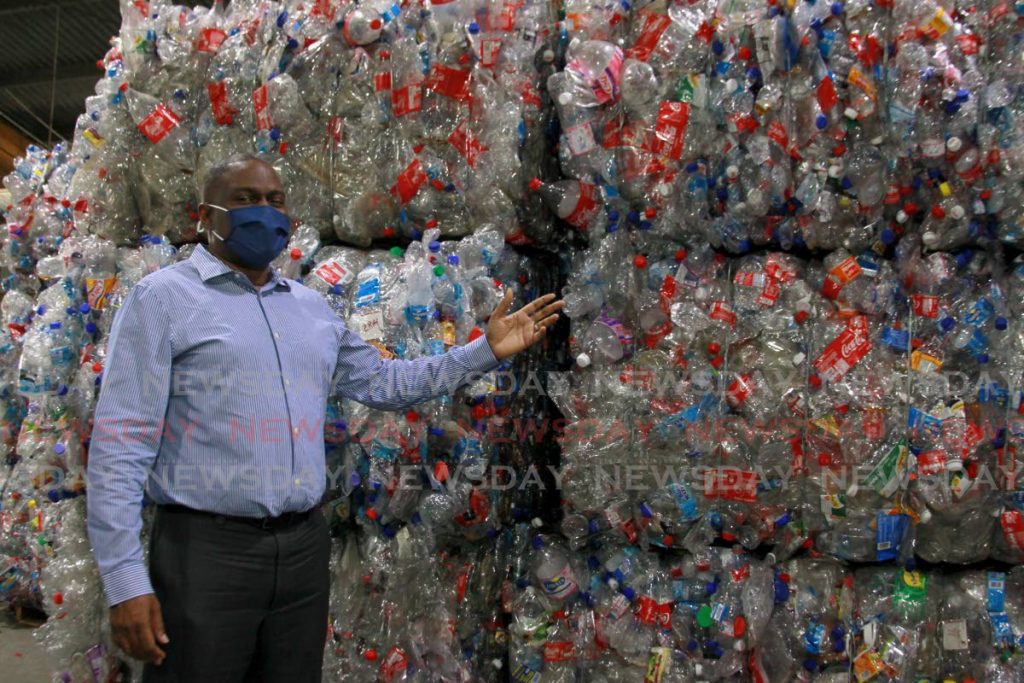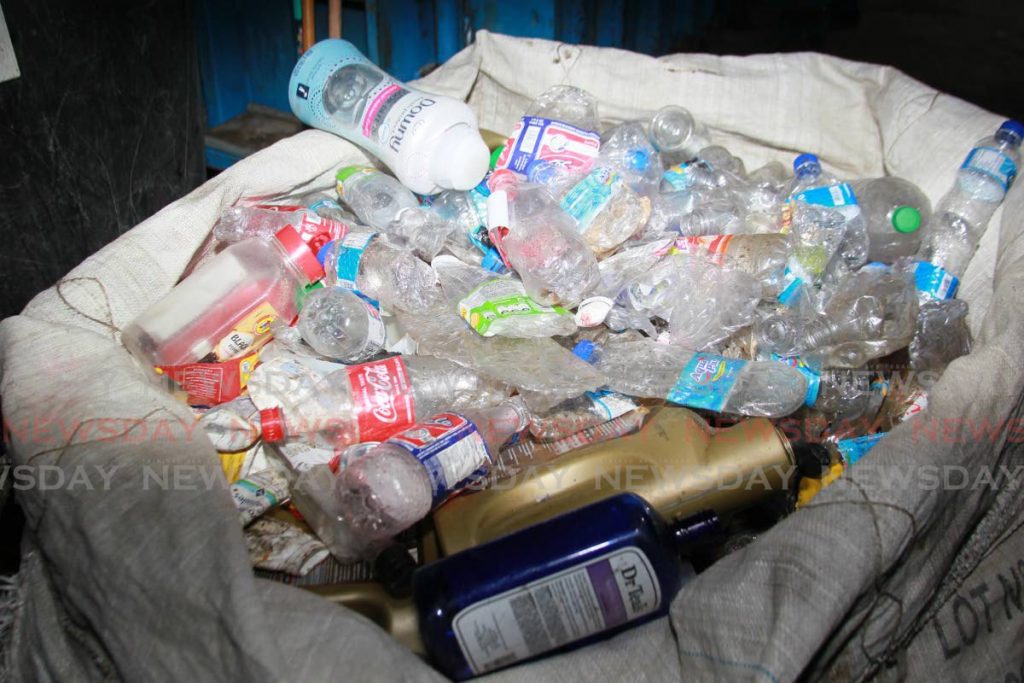Gopee-Scoon: Consumers must reduce plastic waste

Plastics make up 19 per cent of all landfill waste and eight of ten items collected on beaches in TT. On World Consumer Rights Day, celebrated on Monday, Trade and Industry Minister Paula Gopee-Scoon reminded consumers to be responsible for making purchases that contribute to plastic waste.
In a statement, Gopee-Scoon said the fight toward sustainability is, at its foundation, an individual effort.
“Hence, it requires each of us to make a more conscious effort in being a sustainable consumer to minimise waste in our daily routines. Responsible individuals create responsible families, responsible families create sustainable communities, and sustainable communities create a sustainable nation.”
The theme of World Consumer Rights Day 2021 was Tackling Plastic Pollution. The Ministry of Trade and Industry hosted a webinar on the topic in conjunction with the Consumer Affairs Division of the Ministry of Planning and Development, the Tobago House of Assembly and the TT Manufacturers' Association (TTMA).
Waste management specialist at the Ministry of Planning and Development Keima Gardiner said there were two conventions TT had signed on to with respect to plastics. These were the Basel Convention, which deals with the shipment of contaminated plastic waste and the partnership on plastic waste to improve and promote the environmentally sound management of plastic waste at the global, regional and national levels. The other is the Stockholm Convention on the persistent organic pollutant.
She said plastics comprised eight of the top ten kinds of waste collected at the international coastal cleanup in 2019, including beverage bottles, bottle caps, bags, forks, knives, spoons, cups and plates, grocery bags, straws, stirrers, lids and miscellaneous plastic pieces.

Gardiner said as a result of a multi-stakeholder steering committee, Cabinet agreed to ban imports of finished EPS styrofoam products in the food and beverage sector, remove customs duty on alternative products, and encourage the manufacturing sector to transition to environmentally sustainable products.
She said the Beverage Container Bill is still at the Ministry of the Attorney General and Legal Affairs.
SWMCOL corporate communications specialist Selma Elie said the organisation aimed to educate people to think about the end life of a product before they bought it. She said there are a number of projects which the entity does as part of its educational programmes, including the public sector recycling programme, the workplace waste reduction and recycling programme for the private sector, and the community and youth outreach programme for schools, which reached 40,000 students over the last three years.
Elie said the pilot of SWMCOL’s municipal curbside recycling programme carried out in Trincity in collaboration with the Tunapuna/Piarco Regional Corporation was able to collect a million containers in its first six months. She said the programme has since been extended to San Fernando, Port of Spain, Couva/Tabaquite/Talparo and Chaguanas, among other places. She encouraged people interested in participating in the initiative to contact their regional corporation.
Elie said SWMCOL’s new beverage container recycling facility in Port of Spain was producing high-quality PET flakes which could be used to manufacture new products. The plant receives and processes post-consumer plastic and glass bottles, aluminium cans, and Tetrapaks.
TTMA’s Christian George said manufacturers are working on reducing plastic pollution by manufacturing products that conform with biodegradable standards, contributing to developing legislation and standards, and substituting plastics with other materials. He said some measures to remedy plastic pollution include enforcement of existing legislation and creation of new ones, identification of plastics that are reusable and recycle-able, implementation of an extended producer responsibility programme, financial incentives to go green, and the creation of a single regulatory body to oversee waste.
Consumer Affairs Division director of consumer guidance and production Claudette Jordan-John said the role of consumers is essential as they are the ones who are able to advocate for change. She said some of their responsibilities were to understand the terms and conditions of sale, obtain warranties in print or writing, inform others of unfair business practices or treatment, report dissatisfaction with goods and services to merchants, check items before signing delivery note, ask questions at the point of sale, save receipts, report apparently unsafe merchandise to the division, and to maintain a healthy environment for future generations.
Jordan-John encouraged consumers to be responsible and reuse, refuse, reduce, and recycle in order to reduce plastic pollution.

Comments
"Gopee-Scoon: Consumers must reduce plastic waste"